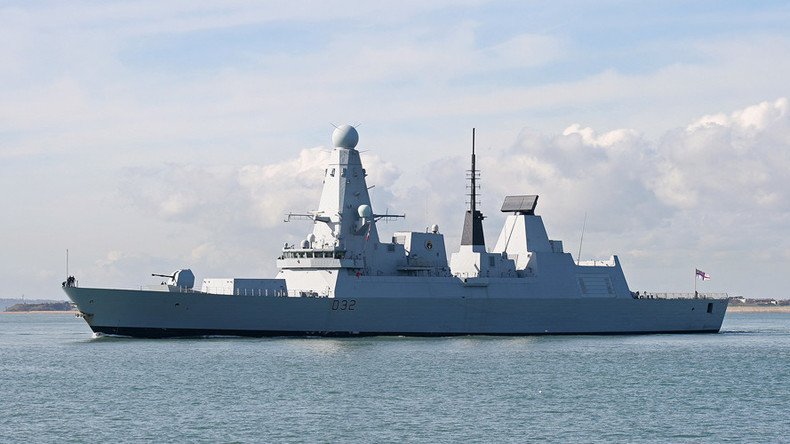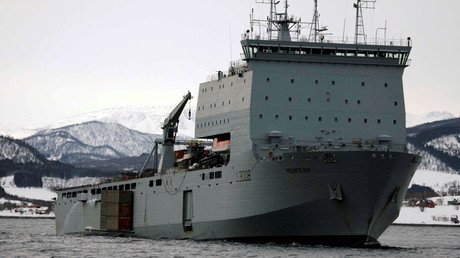Royal Navy targets Libya gun runners & people smugglers

Type 45 destroyer HMS Diamond set sail on Wednesday on a mission to tackle arms traffickers and people smugglers in the southern Mediterranean, the Ministry of Defence (MoD) announced.
The military said the destroyer “will provide a picture-building capability to help enforce the UN Security Council Resolution prohibiting the trafficking of arms to Libya.”
The commanding officer, Commander Marcus Hember, said in a statement he is “proud that we will join the operation and make a contribution to tackling the movement of illegal arms around the region.”
The efforts will be carried out under the codename ‘Operation Sophia’ and will take around two months.
Libya has seen a flurry of Royal Navy activity in recent days with the announcement on Wednesday that sailors from RFA Mounts Bay, alongside the Danish Navy, were helping to escort the last chemicals that could have been used to make toxic weapons out of Libya.
Libya was largely disarmed of chemical weapons in 2014 but the last remnants have now been taken out of the war-wracked North African state after a request by the country’s UN-brokered unity government to the Organisation for the Prohibition of Chemical Weapons (OPCW).
“RFA Mounts Bay will help ensure chemical weapons precursors do not fall into the hands of extremist groups, including Daesh [Arabic pejorative term for IS]. This contribution underlines our support to the Libyan Government of National Accord,” Defence Secretary Michael Fallon said in a statement.
“The UK, in close cooperation with our international partners, is taking practical and effective action to eliminate chemical weapon risks in Libya,” he said.
Speaking to the Telegraph on Wednesday, former British Army chemical warfare specialist Hamish de Bretton-Gordon said: “There’s been a very sophisticated operation going on to remove these chemicals. It’s a very significant day.
“A very large amount of chemical weapons are now in the relative safety of coalition ships, where there was a view some time ago that there was a possibility that they could fall into the hands of Islamic State [IS, formerly ISIS/ISIL],” he said.












